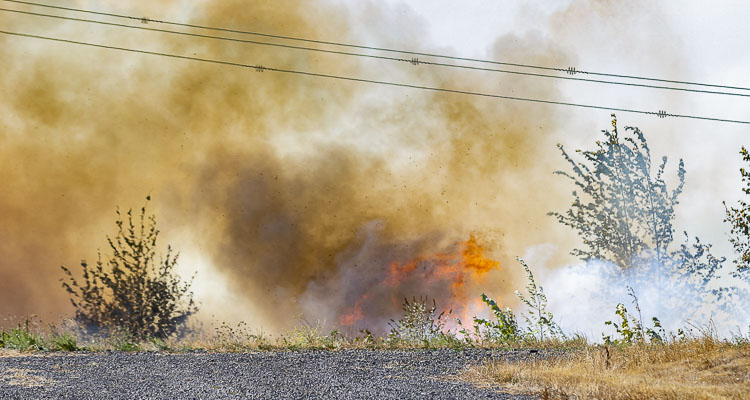Outdoor recreationists are encouraged to check fire restrictions for various public land management agencies before they go, as they can vary

OLYMPIA – The Washington Department of Fish and Wildlife (WDFW) announced Thursday it will lift its campfire and other remaining fire restrictions on most Department-managed lands starting today (Oct. 14).
“While wildfire risk remains high in some areas, the risk of large fires is low and the state’s capacity to fight fires is good,” said Cynthia Wilkerson, WDFW’s lands division manager. “We know folks are eager to enjoy the outdoors this fall season, and we continue to encourage people to recreate with extreme caution to help prevent wildfires. This includes using alternatives to campfires such as propane stoves for cooking and fully extinguishing any campfires that do occur.”
Campfire restrictions for WDFW’s South Central Region including Benton, Franklin, Yakima and Kittitas counties will be in place through Oct. 15. A campfire ban remains in place through Oct. 31 at the Columbia Basin Wildlife Area in Adams and Grant counties and at the Klickitat Wildlife Area in Klickitat County due to their drier, more sensitive nature.
WDFW institutes campfire bans in hot summer months to reduce fire risk across the state on Department-managed lands and surrounding public lands and communities. These actions help protect habitat, wildlife, and human health.
Outdoor recreationists are encouraged to check fire restrictions for various public land management agencies before they go, as they can vary. For more information about fires and fire prevention on public lands, visit the Washington State Department of Natural Resources website or the U.S. Forest Service website. For local restrictions, residents should contact their county.
Maps and detailed information about WDFW’s 33 wildlife areas are available on WDFW’s website. More information about Recreate Responsibly is available at recreateresponsibly.org/.
WDFW manages more than a million acres of land and hundreds of water access areas throughout the state. By actively managing lands, restoring habitats, and preserving wild places, the Department serves as stewards for Washington’s natural places, protecting the state’s land and water for its human and wildlife populations.
Also read:
- C-TRAN board member regrets vote that could leave Clark County taxpayers on the hook for light railC-TRAN board member Tim Hein says he regrets a 2023 vote that could commit Clark County to funding light rail O&M. He’s now urging the board to reverse course and protect taxpayers.
- Social media activity of Clark County public defender questionedPublic Defender Renee Alsept’s anti-Trump social media posts have sparked concern from citizens and former officials, but Clark County says personal accounts aren’t covered by policy.
- Opinion: ‘Vilifying broad swaths of Americans’Editor Ken Vance reflects on troubling posts by public defender Renee Alsept and shares a thoughtful perspective from longtime attorney Brad Andersen on ethics, discourse, and professionalism.
- POLL: Should the county update its Human Resources policy to include personal social media accounts of employees in sensitive roles?POLL: Should the county update its Human Resources policy to include personal social media accounts of employees in sensitive roles?
- Project 42 launches its third county project in Clark County with Leslie Lewallen as directorProject 42 has launched its Clark County initiative with Camas Council member Leslie Lewallen as director, aiming to boost civic engagement and local government accountability.
- Paddle Safe Week begins July 22, teaches importance of water safetyPaddle Safe Week runs July 22–28 and highlights water safety practices for paddlers across Washington, including life jacket use and cold water shock prevention.
- Council for the Homeless releases 2025 Point-in-Time Count for Clark CountyThe 2025 Point-in-Time Count found increases in sheltered seniors and unsheltered individuals across Clark County, with CFTH emphasizing the need for long-term housing solutions.











